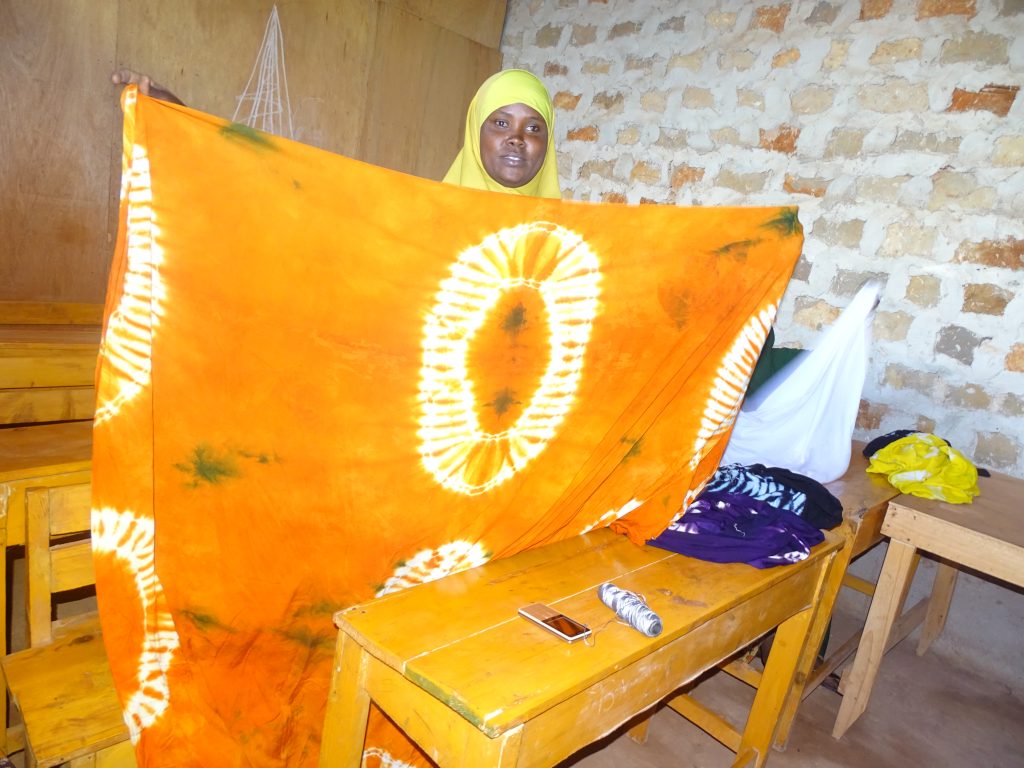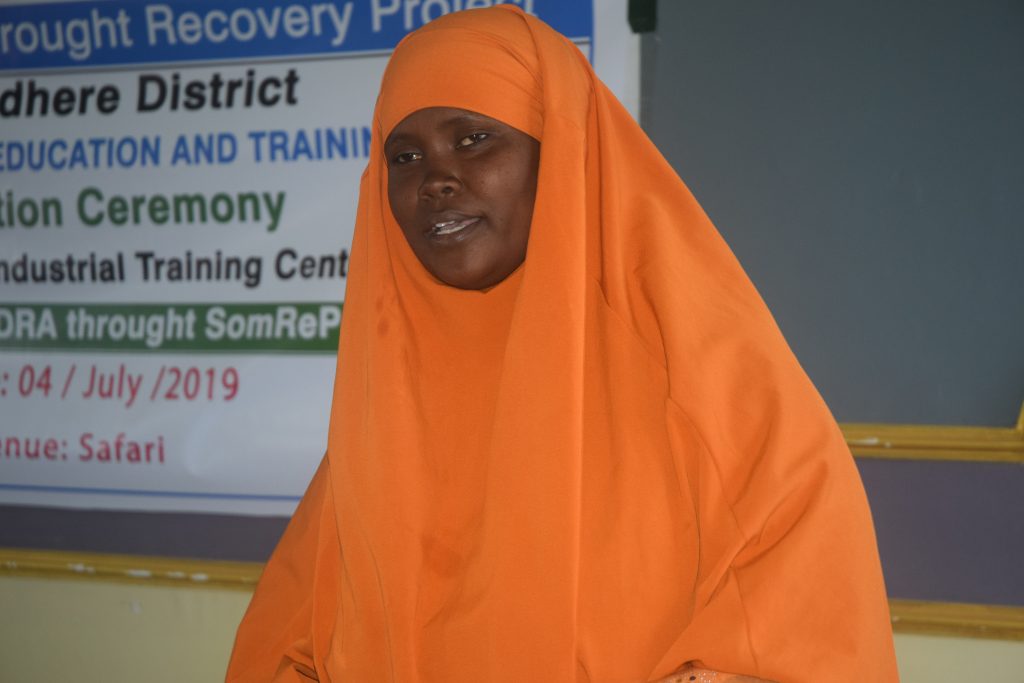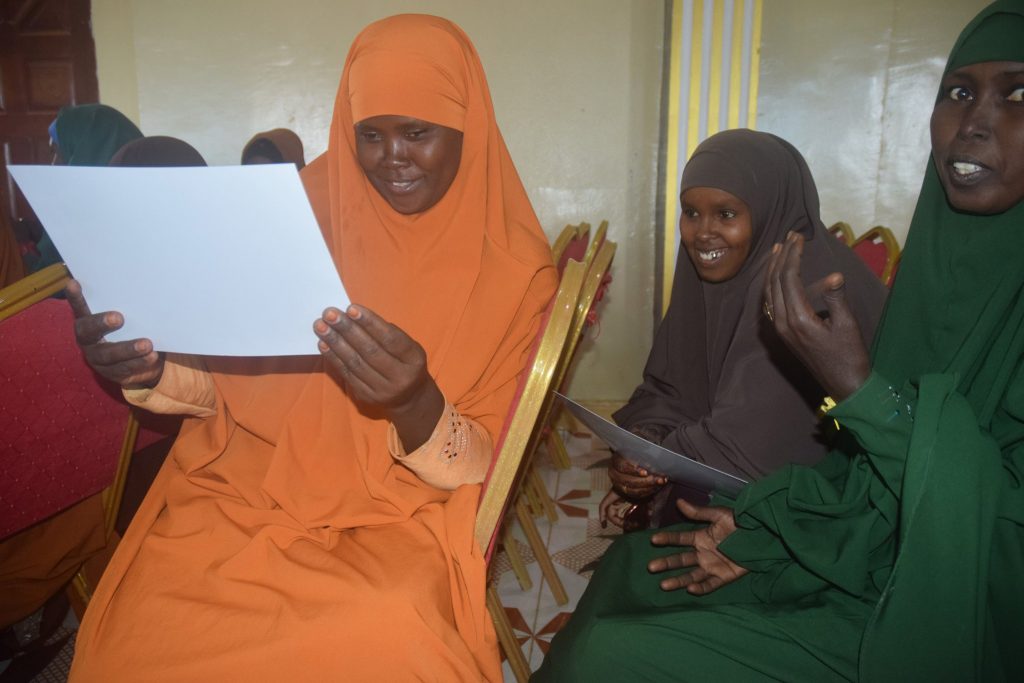
At 24 years old, Barlin Abdiaziz’s husband passed away. He was the bread winner. She didn’t know how to navigate the landscape of life alone. She looked at her children and knew she had to do something. She started doing odd jobs; washing clothes, assist in mixing cement at construction sites. Anything that could bring in money, she did. She was not selective.
Then she was selected.
“I was informed by my village elder that I was selected to take part in a vocational training that will help me get skills.”
This excited her. For the first time in her life, she was going to sit in a class and learn something. She chose to do tie and dye.
“I chose tie and dye because when they explained what we will do, I thought it will be easy to make the clothes.”

And as she found out, the work was easy.
“We were taught about various patterns; it also doesn’t require a lot of work and within a few hours it is ready.”
She was not only taught about making tie and dye, but how to price the materials as well.
“The pricing had been an important part of the training because I will know how to price the materials I will make.”
Her zeal to succeed saw her make some tie and dye materials for other students who were doing other courses.
“With the incentive that we got, I used to buy some materials and make some clothes for some of the students.”
Now at 30 years old, Barlin Abdiaziz is grateful for the opportunity she got.
“I never knew how to do anything. I came here knowing nothing. But as I leave this place, I leave with skills and a determination to set up a business. I want to thank the donors because they gave us an opportunity to make use of the time that we have. I want to thank ADRA and the elders who selected us to do the course. I also want to thank my teacher because when I came here, I did not have any skills but after the four months, I leave this place with a new skill.”

She vows to make every opportunity of the time she has so that she can meet the needs of her children.
ADRA under the Somalia Resilience Program (SomReP) implements drought recovery livelihoods, food security and resilient projects aimed at building community assets and creating safety nets which enables the beneficiaries to withstand the effects of recurring disasters in Somalia. The South West State Drought Recovery project in Qansadhere is expected to contribute to improved resilience and increased adaptive capacities for communities’ households in Somalia to protect their livelihoods over continuing shocks.
Barlin was among 20 students from Qansadhere who graduated in July after an intense four-month training in various market relevant skills. The skills included tailoring, tie & dye, beauty and salon.

